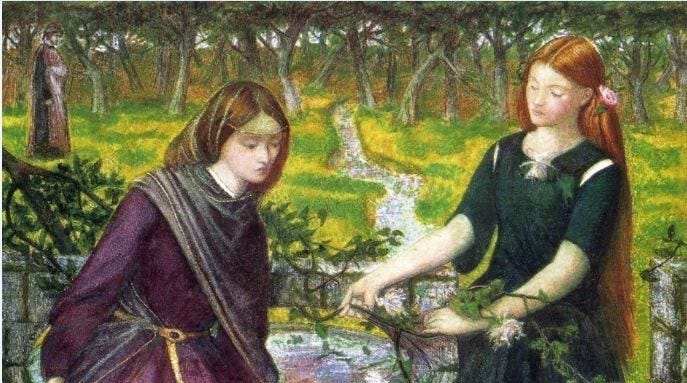Sunday School: Sister-Sister — What would you do for a mandrake?
There were no good old days or simpler times. People are people, and always were. A Genesis 30 story.
We’ve all heard it. We’ve all pondered it. Some of us have even debased ourselves in answering it: “What would you do for a Klondike bar?”
You might be surprised to learn that question has roots in the Bible.
Genesis tells two stories of siblings going to great lengths for food.
The better-known is Esau selling his birthright to Jacob, the deceiver, for a bowl of lentil stew in Genesis 25.
The more interesting is Leah arranging a night of sex with husband Jacob by leveraging sister Rachel’s want of a mandrake.
Jacob was married to both sisters, but married Leah out of custom and obligation. He married Rachel out of love and spent his nights with her. The two engaged in a proxy battle for Jacob’s affections by sending their servants to birth him children. (Jacob had apparently learned little from grandfather Abraham, who had a similar arrangement go poorly.)
In Genesis 30, one of Leah’s sons, Reuben, returns from the fields with mandrake plants. He brings them to Leah. Rachel asks for some.
Rachel was the beloved, but had yet to bear Jacob any children. In their own minds, both sisters were on the short end of the sibling rivalry.
“Give me children, or I’ll die,” Rachel tells Jacob in Genesis 30:1. Jacob wriggles out of the guilt trip by reminding Rachel he is not God, that those decisions are above his pay grade.
When Rachel asks for a mandrake, it’s Leah’s turn to lay a guilt trip.
“Wasn’t it enough that you took away my husband?” she says after Rachel’s request. “Will you take my son’s mandrakes too?”
“Very well,” Rachel says. “He can sleep with you tonight in return for your son’s mandrakes.”
“You must sleep with me,” Leah informs Jacob as he returns from the field. “I have hired you with my son’s mandrakes.”
Jacob’s sex was sold without his consent, for mandrakes we never read about him eating.
For the want of a mandrake, a wife sent her husband to the bed of her rival sister-wife. In so doing, the rival gets pregnant.
What would you do for a mandrake?
Search “RETVRN” on Twitter and you’ll find conservatives and traditionalists longing for a simpler, “better” time.
This works as myth, but history tells it differently.
When, would you say, were things great? The 1950s, with massive discrimination still fortified by the law? The prohibition of the 1920s, which elevated the gangster from two-bit to modern cowboy — oh, and rich too. That?
Earlier? A time before cars drove roads and planes flew skies? Before air conditioning and inhalers?
What is it you’re chasing, really? Why are your energies there, not here?
There were no simpler, better times. All of humanity has had its menu of struggles.
People were getting low for mandrakes in year 50 and refused to share water fountains with their neighbors in the 1950s.
People are people were people: Capable of ill, if we let ourselves, or of greatness if we push ourselves.
As you plot your RETVRN, be advised: in the Bible, the “salt of the Earth” got that way by looking back.
But that’s a story for another Sunday.


